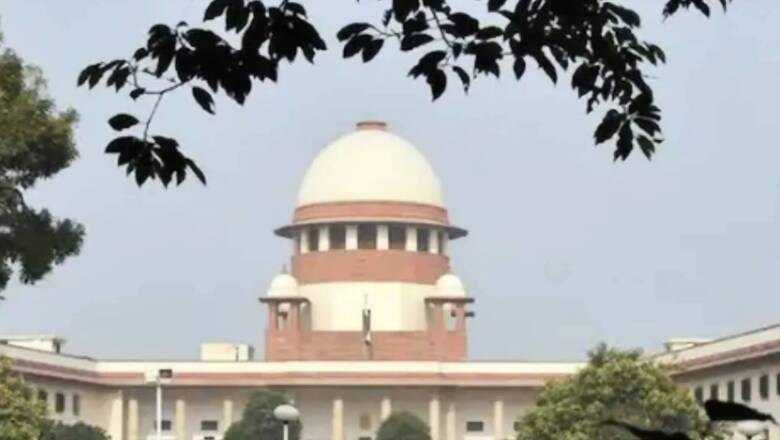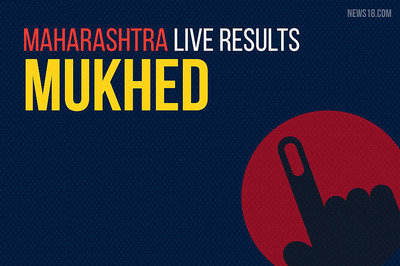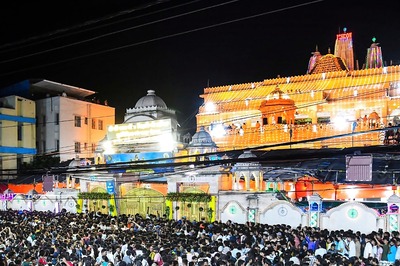
views
\The Supreme Court on Wednesday said it would decide on February 5 the schedule of hearing on the pleas pertaining to the 2018 Maharashtra law granting reservation to Marathas in education and jobs after the state government said a case of this nature be heard once physical hearing commences. The apex court is presently hearing matters through video-conferencing since March last year amid the COVID-19 pandemic.
A five-judge constitution bench headed by Justice Ashok Bhushan was told by senior advocate Mukul Rohatgi, who was appearing for Maharashtra, that the state is requesting for an adjournment and the matter be heard in March. Physical meetings are dangerous today, Rohatgi told the bench, also comprising justices L Nageswara Rao, S Abdul Nazeer, Hemant Gupta and S Ravindra Bhat.
During the hearing conducted through video-conferencing, Rohatgi said there is an interim order against the state and it may be appropriate for a case of this nature to be heard once physical hearing commence. Requesting the bench that the matter may be posted for hearing in March, he said that vaccination for COVID-19 has started in the country and it may take six to eight weeks for the judges and lawyers, who are above the age of 60, to get vaccinated. We will take a call after two weeks on what is to be done, the bench said, adding, We will fix date for directions after two weeks. Then, we will finalise the schedule for hearing.
The bench has posted the matter for February 5 and said it would decide the schedule of hearing. On December 9 last year, the apex court had said that issues pertaining to the 2018 Maharashtra law, granting reservation to Marathas in education and jobs, requires urgent hearing as the legislation has been stayed and the fruits accrued are not reaching to the people.
The top court had also issued notice to Attorney General K K Venugopal seeking his assistance in the matter. The apex court on September 9, while referring to a larger bench the batch of pleas challenging the validity of law, had stayed the implementation of the legislation but made it clear that status of those who have availed of the benefits would not be disturbed.
The Socially and Educationally Backward Classes (SEBC) Act, 2018 was enacted to grant reservation to people of Maratha community in Maharashtra in jobs and admissions. The Bombay High Court, while upholding the law in June 2019, had held that 16 per cent reservation was not justifiable and said that quota should not exceed 12 per cent in employment and 13 per cent in admissions. According to the 102nd amendment to the Constitution, reservation can be granted only if a particular community is named in the list prepared by the President. On July 27, the Maharashtra government had assured the top court that it would not proceed with the recruitment process to fill up the vacancies on the basis of 12 per cent Maratha reservation till September 15, except for departments, Public Health and Medical Education and Research.
The high court, in its June 27 last year order, had said that 50 per cent cap on total reservations imposed by the Supreme Court could be exceeded in exceptional circumstances. It had also accepted Maharashtra government’s argument that the Maratha community was socially and educationally backward and it was duty-bound to take steps for its progress. The high court had said though the reservation was valid, its quantum — 16 per cent — was not justifiable and it should be reduced to 12 per cent and 13 per cent, as recommended by the State Backward Classes Commission. One of the plea filed in the apex court had claimed that the SEBC Act breached the 50 per cent ceiling on reservation fixed by the top court in its landmark judgment in the Indira Sahwney case, also known as the ‘Mandal verdict’. On November 30, 2018, the Maharashtra legislature had passed a bill granting 16 per cent reservation to Marathas.
Read all the Latest News, Breaking News and Coronavirus News here


















Comments
0 comment